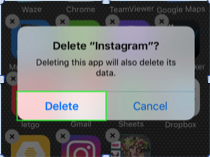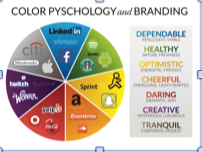by Vittorio Compagno for the Carl Kruse Blog
Sometimes you just need to pull the plug. From work, school, the rest of the world, you know when it’s time. So it’s no surprise that more and more people have decided to quit social media.
The choice of deleting your Instagram or Twitter apps is always intentional, and always requires great willpower, whatever your goal is.
Anyway, I decided to screw up my courage and quit social media for 30 days.
Here’s my experience and it all started with a challenge with my girlfriend.
We were both tired of the daily farce on our Instagram feeds, and, most of all, we couldn’t stand being bombarded by news anymore. We knew that it would have been a hard challenge, but we were willing to take it, motivated by the positive experiences of YouTubers like Matt D’Avella.
Immediately we deleted all of the social media apps on our phones, leaving just essential communication ones like Telegram and Whatsapp.
We had a goal in mind: discover how true were those articles about the health benefits of social media detoxing. We wanted to experiment with ourselves. So, how did it go?

The initial impact
The first days of our bet were hard. You tend to get used to scrolling through your smartphone first thing in the morning, but this wasn’t an option anymore, so we were forced to wake up, have breakfast, and start our day with whatever we had to do.
That seemed at first a loss, and I felt some emptiness. Not having to check my phone all the time just to scroll through my feed was making me nervous.
When I had breakfast I was used to checking out my Instagram feed, and while getting ready, I used to focus on whatever was happening on Reddit. The absence of these habits made me feel empty as if there was something in me that was lacking.
There were periods of time that I spent doing absolutely nothing. Those were the moments where I could hear my thoughts, or discuss with myself, and I felt alone. Since my days were not spent observing Twitter comment wars anymore, I was ‘forced’ to do different things that at first made me nervous. It was like waking up from anesthesia and gradually feeling the world around me.
There’s a scientific reason for that. Instagram, Twitter, and other platforms are made so that you stick to them as long as possible. The colors, the structure of buttons, the feed, every single element on a social media platform is made for a single purpose: mindless consumption.

It all breaks down to the chemicals that our brain produces when we receive a like or a notification. It’s been shown that when, for instance, we get a like, our brain produces a small dose of dopamine, that adds up to the thousand other doses we had during the day. It’s just like taking a drug, except you don’t notice it, but the side effects are just as big.
It was like the first days of quitting smoking, everything you do happens with the thought of how it would have been if you had that last cigarette.
The first days of my challenge brought total discomfort, but the remaining three weeks were something else, and made me understand why people decide to quit social media.
In my free time, I could stay with myself and think about my short and long-term goals. On the other hand, in the time spent doing a task, I saw that I could focus more on the specific thing I was doing instead of checking out my Instagram feed.
Another game-changer for me was the ability to start my day without the need to check my phone. That allowed me to accomplish my goals for the day since I started this challenge, not letting the dullness of the wakening mix up with infinite scrolling on Reddit.
But the biggest relief was not having to check out the news for the day, during a historical period where we are bombarded with non-stop numbers, data, sensationalist titles, and hyperbole.
Slowly I felt more and more detached from the meaningless arguments going on under every Twitter post of any kind, and I started using the time I had with my phone to check out curiosities and facts on Wikipedia, which I discovered has a great mobile app that picks a random page on its archive for you to read. (See how to use the random facts on Wikipedia to even go about naming your company or your band in this post over on Carl Kruse’s other blog).
The feeling I had is probably based on the notion that excessive consumption of news is linked to greater anxiety and stress. Without the news, I saw I could live my days without the pandemic numbers or other tragedies.
These changes didn’t only affect my mental health, but also my accomplishments.
My productivity skyrocketed, just like my university grades, since I could focus more on what was important. I started doing things I kept delaying, like cleaning my room or watering my poor dry plants.
My mood changed as well. If in the first days of my challenge I felt tired with a general sense of privation, the remaining weeks saw my boredom threshold rising. I was generally more spontaneous and less alienated.
Another important aspect was the attention given to certain tasks while engaged with them.
We are increasingly seeing that living in a digital world made of shiny buttons and interfaces to make us consume more leads to a lower attention span and an overall lower productivity.
And it seems logical that it is so as the world we live in is filled with loud videos and oversaturated images, with influencers conspiring against boredom.
I totally embraced said boredom, and got used to visual stimuli I did not care about previously, like the text on a book, or a beautiful building. Reading or playing chess became activities that didn’t bore me anymore, I had fun in fact, and didn’t miss losing my time on some app’s feed.

The downsides
I thought there would be downsides to this challenge. I kept assuming all of my social circles, with which I already lost contact since the pandemic, would think I purposely ignored them. But I discovered something else. They were happy when I, to limit my Whatsapp and Telegram usage as much as possible, used to call them. Real conversations took place since we now could add the tone of our voices as additional conversation layers and use sarcasm or genuine happiness because we were not limited to our digital medium.
To maybe state the obvious, but a joy to rediscover, when you speak directly to someone you have more freedom to express yourself, or just chat, as voice conversation allows for a larger spectrum of human emotion and soul to emerge.
To sum it up
Every choice I took during the last weeks of my challenge, every reaction, every habit that I built and developed have been the direct consequence of the freedom I had to live my life without what is, for our society, an addiction.
I felt free from checking my phone, and the chin that tied me to that little glass and metal slab vanished as soon as I decided to take control of what caused my addiction. It made me think about how many hours there’s really in a day, and how many things one could do if he wants it.
A new way of seeing life grew into me, and I think I will never go back.
=========
Homepage of the Carl Kruse Tech Blog is at https://carlkruse.at
Contact: carl AT carlkruse DOT com
Hazel Anna Rogers discusses further tugs between the physical and digital realms in the last blog post here on Ebooks.

I quit all social media for only one week and found it life changing. I’m back on it again but seriously thinking of ditching all of it.
I drew up a plan to quite social media for two weeks and I didn’t last two days before running back to it.
My cousin not only quit social media but also email!
Says his life his multiple times better than before.
I couldn’t do it.
Turn off your monitors one day a week!
Love my books but love my iPad more.
I am too scared to quit social media.